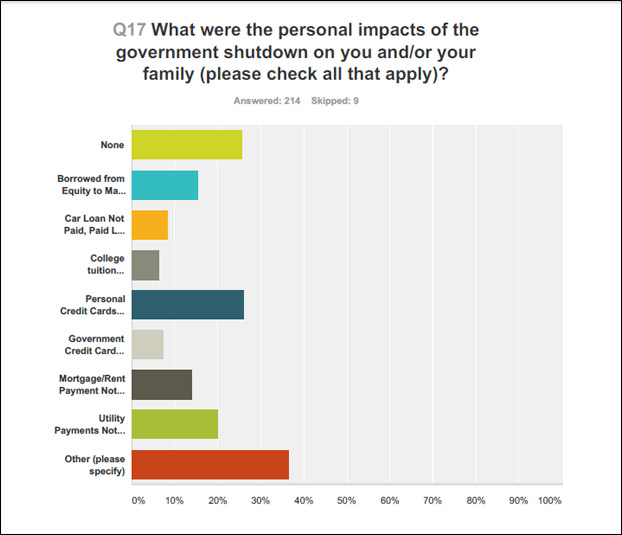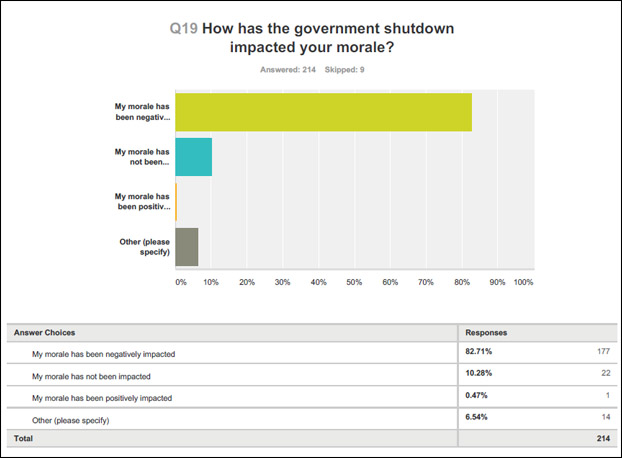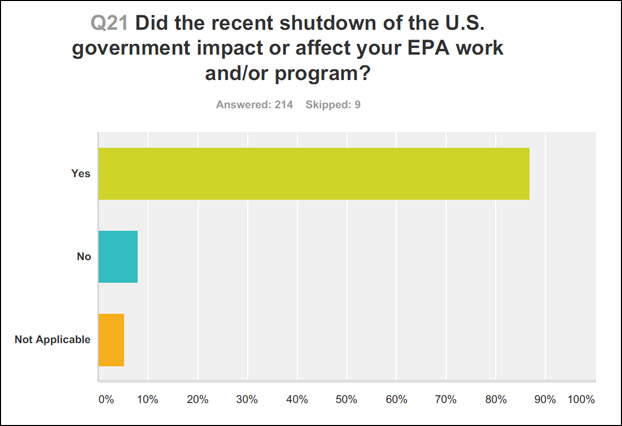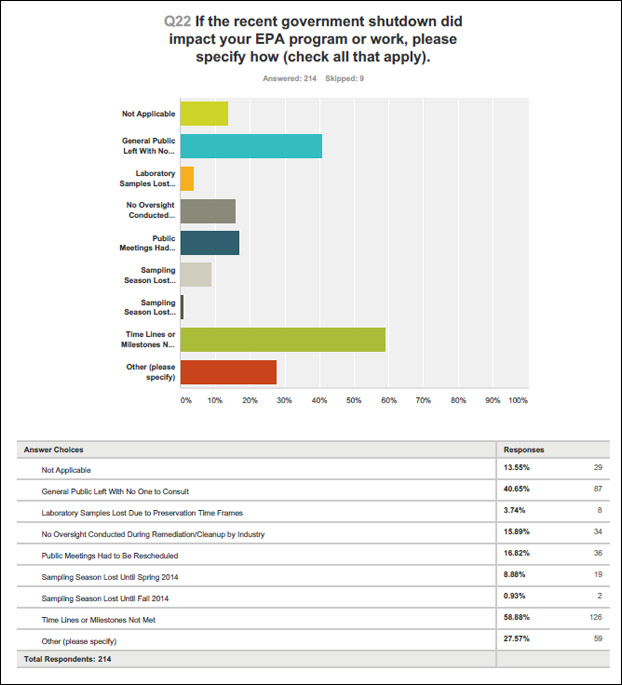New threat of shutdown rehashes old fears for feds
AFGE reminds Congress, White House and others of the concerns feds had during the last government shutdown and the impact the work stoppage had on them and their...
With the threat of another government shutdown looming and no update on progress for budget talks, concerns over impact have federal employees on edge, especially those who were furloughed for 16 days in 2013.
On Thursday, President Barack Obama and top Democrat leaders agreed that a short-term, clean continuing resolution is the best way forward to avoid a government shutdown on Oct. 1. The President met with Senate Minority Leader Harry Reid (D-Nev.) and House Minority Leader Nancy Pelosi (D-Calif.) to ensure they were on the same page as the end of the federal fiscal year nears.
Obama, Reid and Pelosi also discussed the importance of securing a long-term transportation deal, renewing the Ex-IM bank charter and other priority investments. Obama reiterated that threats by some Republicans to shut down the government and eliminate health care services is a game of chicken that they cannot accept.
But with the Oct 1 deadline fast approaching, American Federation of Government Employees Local 704 re-released results from a survey done after the 2013 shutdown gauging what concerned feds in their division most over the course of their 2 1/2-week employment gap, and also gave them the chance to anonymously voice their opinions of how their agencies handled the shutdown.
With the potential of another government shutdown becoming more real every day, AFGE wanted to remind lawmakers, the White House and others of the impact of 2013 shutdown on employees specifically from the Environmental Protection Agency.

Personal financial impacts of the furlough
About 75 percent of respondents said they and their families experienced some form of financial impact because of the shutdown, ranging from late credit card bills and utilities to car and mortgage payments.
“In addition to having to borrow from equity, my saving account was drawn to a level that will not support my family if some out of pocket financial needs arise,” wrote one respondent.

Sinking work morale
Nearly 83 percent of respondents answered their morale was negatively impacted by the shutdown, with 71 percent feeling government service was not honored by Congress.
Some respondents said being labeled as “non-essential” employees is demoralizing and makes them feel they aren’t considered important to Congress.
“I wish they would use a term other than non-essential, because it is insulting,” one respondent said. “If I am not essential, then why am I even here?”

The shutdown’s effect on agency programs
Nearly 87 percent of survey participants felt their agencies’ programs were negatively affected by the shutdown — 59 percent of which responded it threw off timelines and milestone goals.
“Due to the time off, I will need to start from scratch on some of my projects,” one anonymous respondent said.
“If my projects were at a different stage, it could have been a risk or an issue,” said another.

Communication breakdowns
One of the major issues furloughed feds targeted in their responses was communication. Anonymous respondents said their agencies hadn’t done enough to factor communication into their shutdown protocols.
“I question EPA’s decision to communicate via e-mail message(s) given that federal employees were barred from accessing their e-mail during the shutdown,” one respondent said. “This is beyond comprehension, unacceptable and would not be tolerated in the private sector.”
Some respondents said communication breakdowns failed on more personal levels.
“I wish my supervisor or someone from my management chain would have called staff to let them know that we are to return to work. If I had not checked the radio or TV I would have not known,” another response said. “Our return to work could have been communicated better and my supervisor should have called us.”
AFGE Local 704 President John O’Grady said in an email including the survey results that he “remains concerned about the overall impact of yet another shutdown,” and hopes “Congress will work together” towards a resolution.
Copyright © 2025 Federal News Network. All rights reserved. This website is not intended for users located within the European Economic Area.




